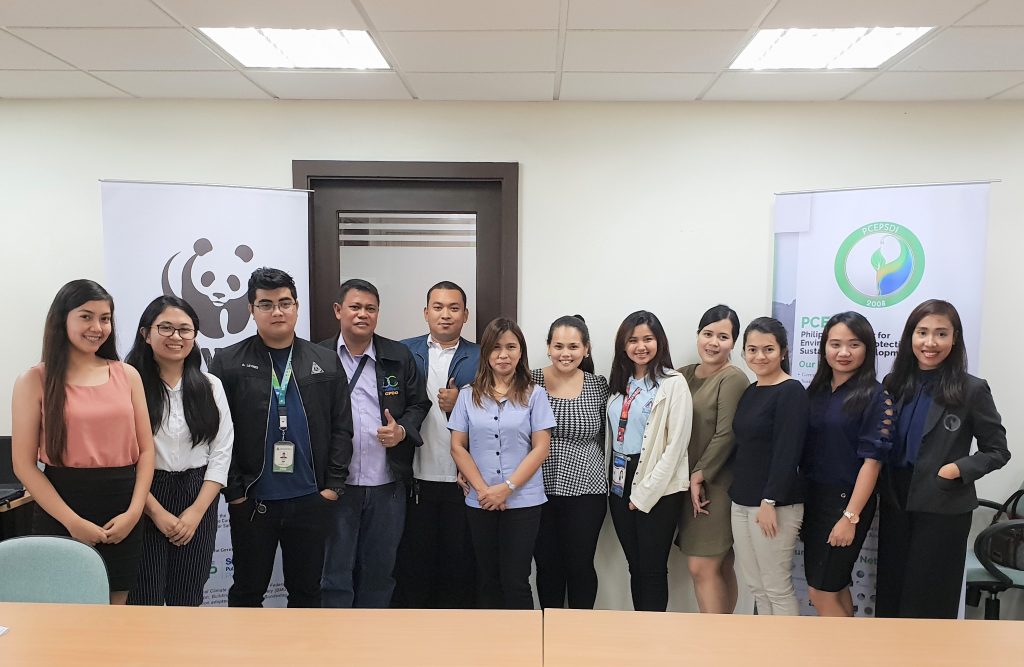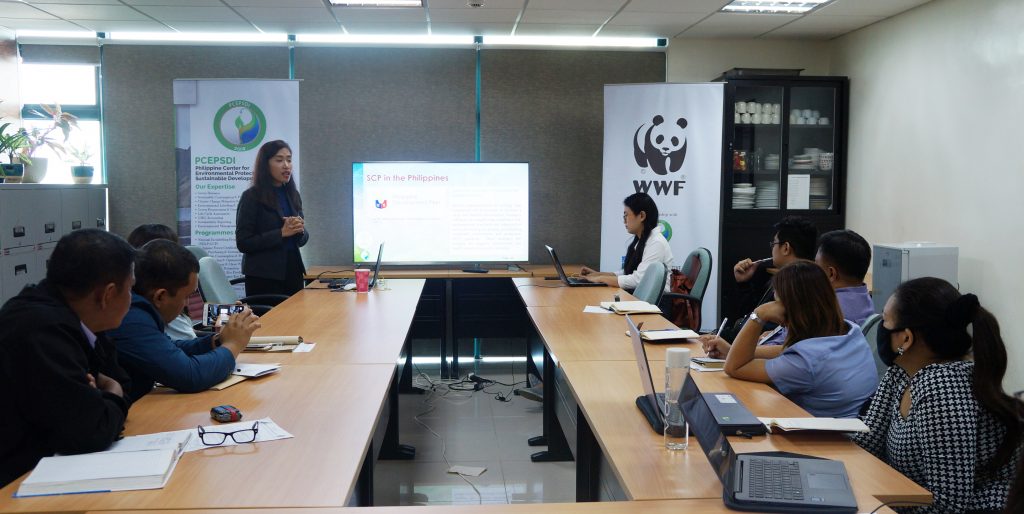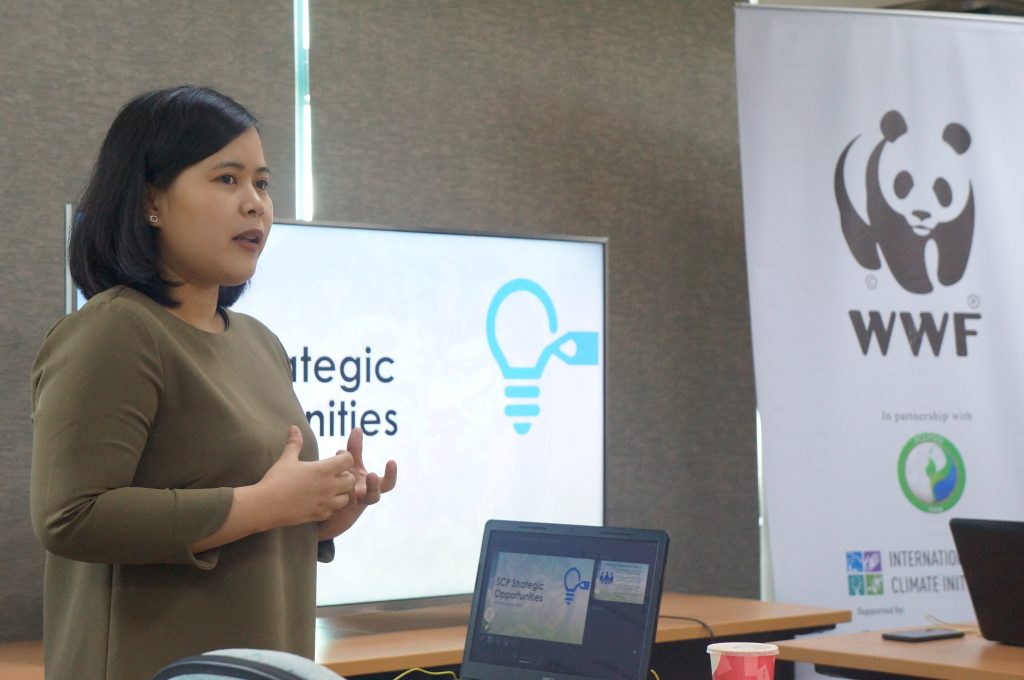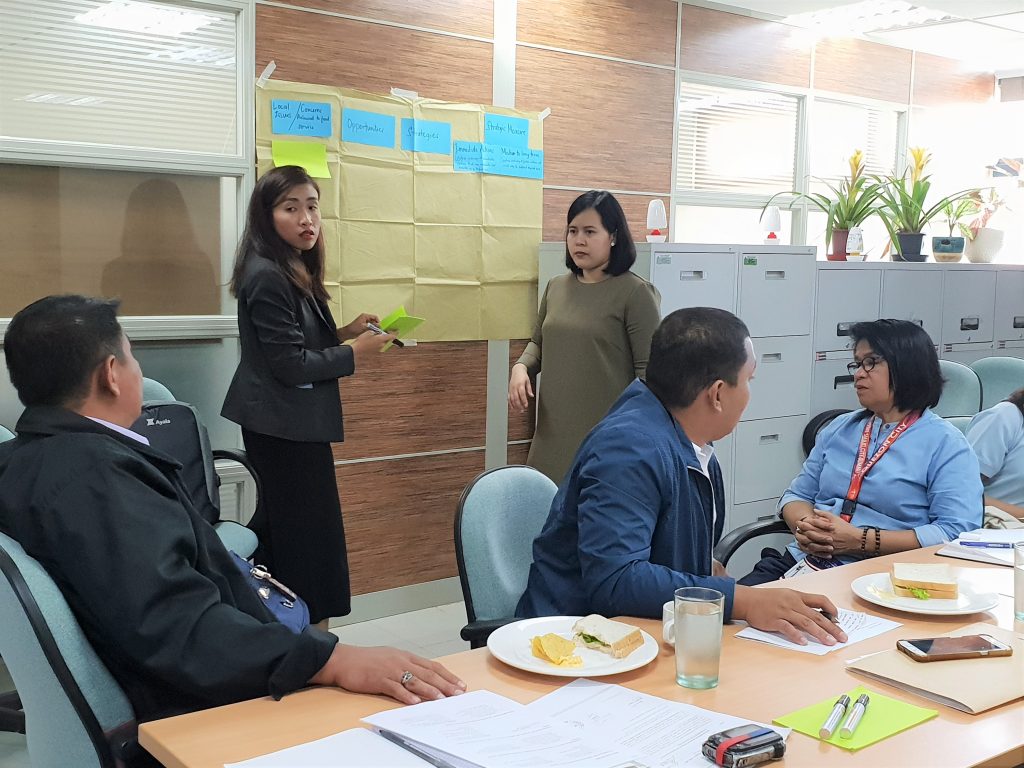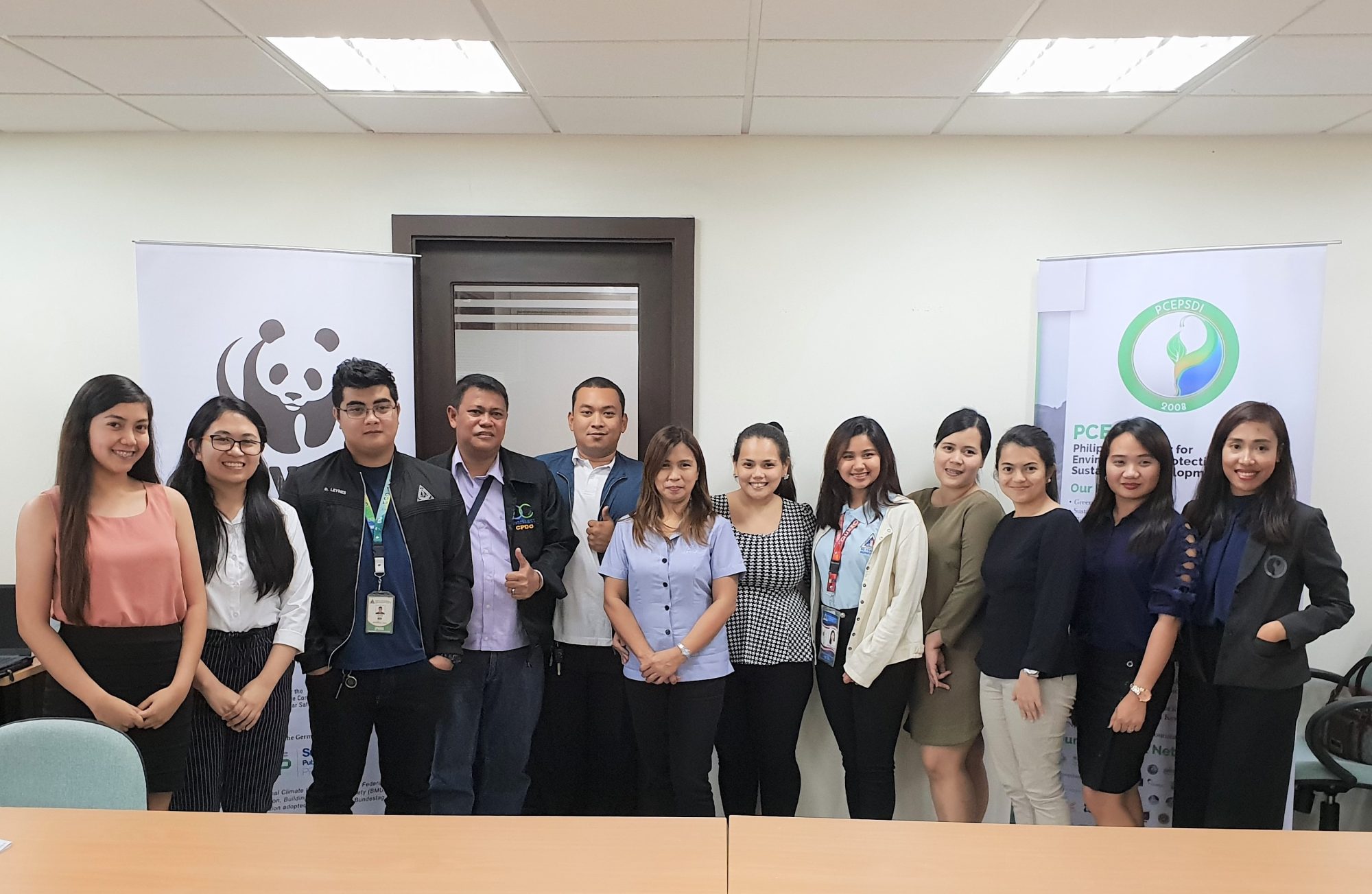PCEPSDI and WWF-Philippines conduct Policy Planning Workshop with the Quezon City Local Government Unit

Photo © Alexa Jeanne Lasch / WWF-Philippines
The Sustainable Diner project team of WWF-Philippines and PCEPSDI with representatives from the Quezon City LGU’s Tourism, Health, Planning, and Environmental Protection and Waste Management Departments.
World Wide Fund for Nature (WWF) Philippines in partnership with the Philippine Center for Environmental Protection and Sustainable Development, Inc. (PCEPSDI),
The Sustainable Diner: A Key Ingredient for Sustainable Tourism project conducted a policy planning workshop together with the Quezon City Local Government Unit (LGU) last January 24, 2019 at the Quezon City Hall. The workshop was attended by representatives from the LGU’s Tourism, Health, City Planning, and Environmental Protection and Waste Management Departments, with the goal of validating action recommendations and strategies from the recently-concluded project Action Planning Workshop, assisting the LGU in the integration of the Sustainable Consumption and Production (SCP) concept into their policies and plans, and identifying specific departments or units that will be assigned to handle each recommended strategic action.

Photo © Pauline Abello / PCEPSDI
Ms. Diana Sadili, PCEPSDI’s Project Officer for The Sustainable Diner project, opens the workshop with a presentation consolidating the challenges being faced when promoting the SCP concept in the country.
Ms. Diana Sadili, PCEPSDI’s Project Officer for The Sustainable Diner project, set the background of the policy planning workshop by presenting project action recommendations and strategies, consolidated the inputs gathered from the Action Planning Workshop held last September 24-25, 2018. The aim of the Action Planning Workshop was to define the medium- and long-term strategic goals of select national and local government units on the implementation of SCP in the food service industry, and to integrate SCP principles into local and national policies and plans. The gathered recommendations and strategies were classified under four major themes: the creation of an SCP council, the institutionalization and harmonization of SCP concepts, the adoption and implementation of SCP practices and policies, and the development of a support system for the food service industry’s transition to SCP compliance.

Photo © Pauline Abello / PCEPSDI
Ms. Liezl Stuart Del Rosario, The Sustainable Diner Project’s Policy Specialist, discussing one of the consolidated strategies to the QC LGU representatives.
The presented action recommendations and strategies were then assessed by the QC LGU representatives, particularly on how these can be improved and implemented through the lens of local policy-making and governance. During the workshop proper, the QC LGU representatives were able to connect the consolidated challenges and opportunities, shared during the Action Planning Workshop by stakeholders from the food service industry, the academe, and other civil society organizations, with some of the challenges that they are facing as a part of the city’s local governing departments. They were able to further validate, enhance and localize the action recommendations and strategies, and followed it up with the assignment of roles and responsibilities to the concerned LGU departments.

Photo © Alexa Jeanne Lasch / WWF-Philippines
Project team members from WWF and PCEPSDI facilitating the workshop proper where QC LGU representatives gave their comments on how the identified action recommendations and strategies can be improved.
The outcome of the policy planning workshop will be further synthesized until a revised batch of action recommendations and strategies, specifically for Quezon City, can be presented and implemented with the help of the LGU’s different departments. In the succeeding months, the same policy planning workshop will be conducted with the Tagaytay City LGU and the Cebu City LGU – The Sustainable Diner project’s other two key city partners.
The Sustainable Diner project, under WWF-Philippines’ Sustainable Consumption and Production, is part of the International Climate Initiative (IKI). The Federal Ministry for the Environment, Nature Conservation, and Nuclear Safety (BMU) supports this initiative on the basis of a decision adopted by the German Bundestag.